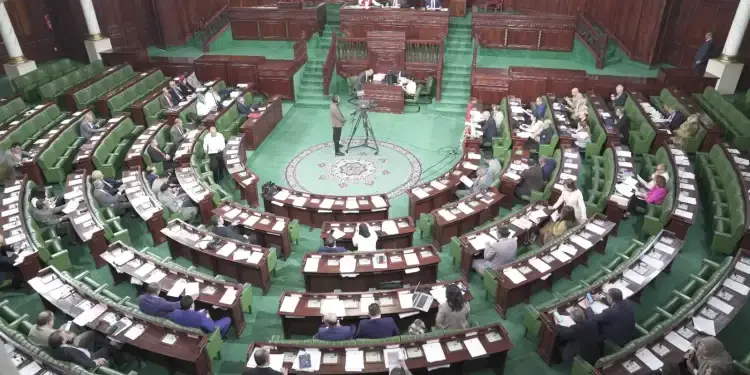The Parliament adopted at the dawn of this Wednesday, May 21, a new legislation framing labor relations, with 121 votes for, four abstentions and no vote against. A major text which ends years of debate on the precariousness of employment.
Presented by the Minister of Social Affairs, Issam Lahmar, Bill 16 of the year 2025 aims to reform in depth the organization of employment contracts and to prohibit subcontracting in the permanent functions of companies, public and private.
Debted during a marathon session started Tuesday morning and concluded Wednesday at dawn, the text gave rise to stormy exchanges. Twice, the president of the Assembly, Ibrahim Bouderbala, was forced to suspend the debates. In the end, only one amendment – relating to article 8 – was selected, the other proposals having been rejected for the benefit of the initial version of the government.
CDI as a standard, highly restricted subcontracting
The new legislation enshrines the indefinite contract (CDI) as the standard form of employment relationship. The use of fixed -term contracts (CDD) is now strictly limited to exceptional cases duly justified. The trial period is set at six months, renewable only once.
One of the most anticipated points of the text relates to the prohibition of subcontracting in the essential and sustainable activities of companies. Only occasional or technical interventions are tolerated, provided that they do not infringe the rights of workers. An unprecedented provision in Tunisian law, which comes after several years of union mobilization on this subject.
Sanctions and transitional period
The text provides for severe sanctions in the event of non-compliance with the new rules: fines, automatic recognition of the direct work link between the employee and the beneficiary company, and exclusion of offenders of any advantage granted by the State.
A transition period is however planned, in order to allow the companies concerned to regularize their situation without upsetting their operation.
In its explanatory note, the government highlights the need to combat precariousness and abusive forms of employment, while guaranteeing the competitiveness of the national economic fabric.
Hailed by a large majority of deputies, this reform is perceived as a turning point in social protection. Several elected officials, however, insisted on the importance of setting up effective control mechanisms to guarantee the strict application of the field law.








